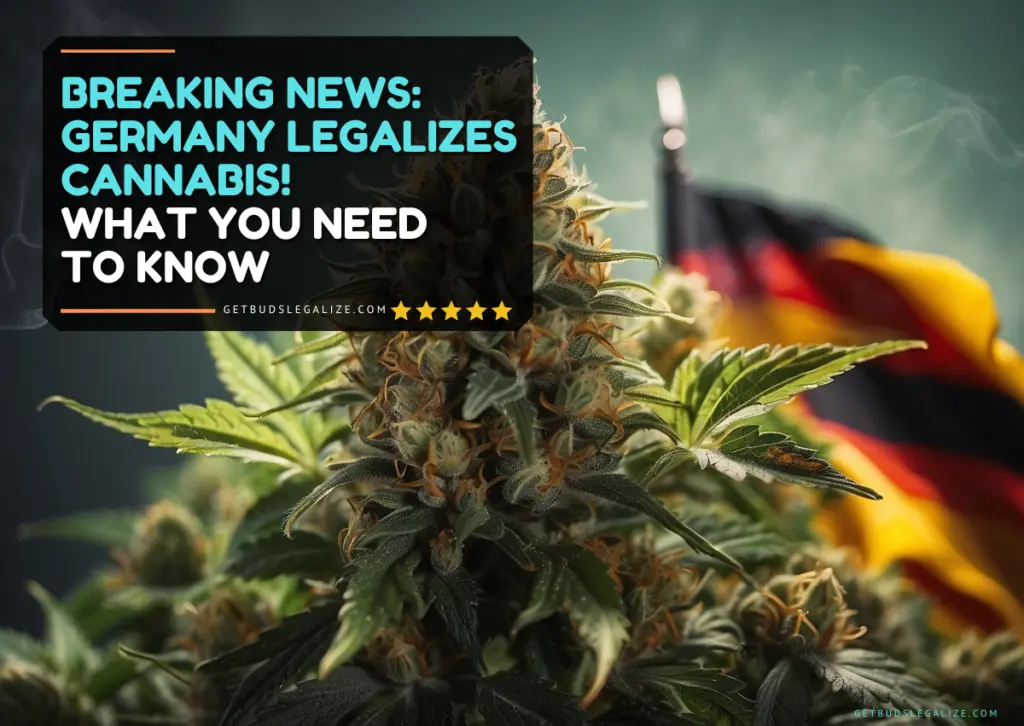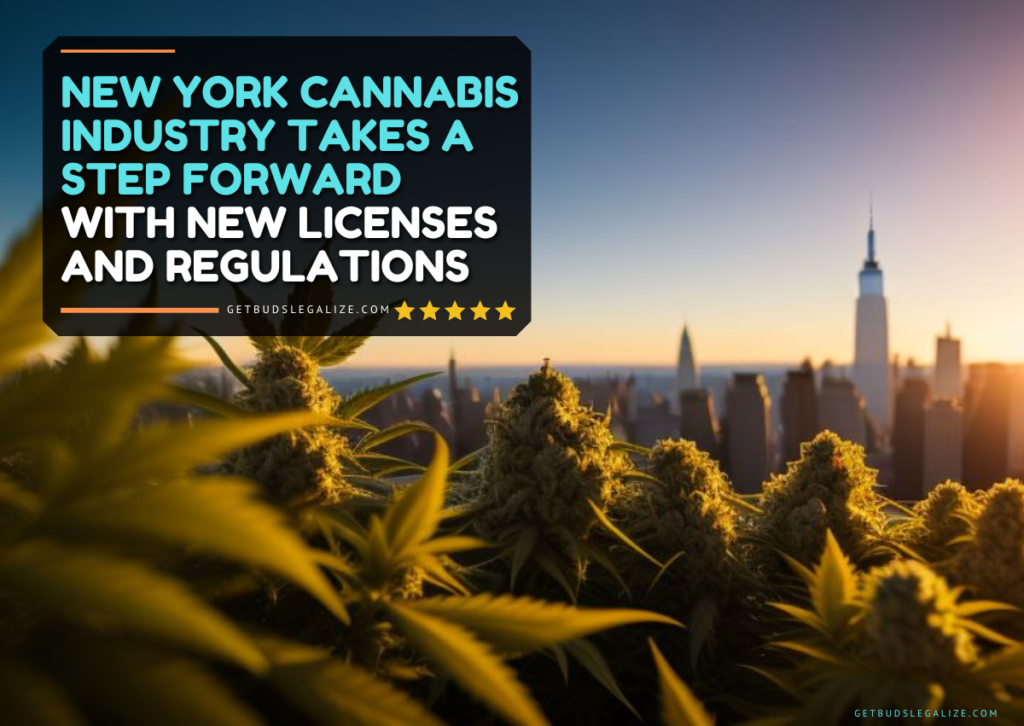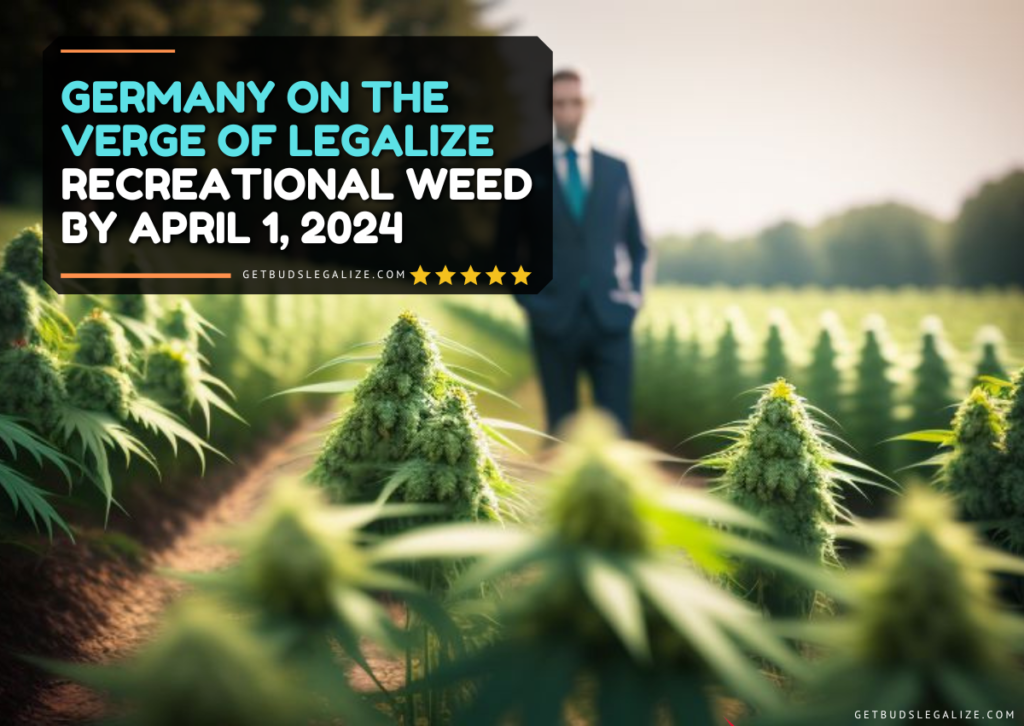British Tourists Lured into Thailand’s Dangerous Drug Smuggling Scheme Under the Pretense of “Free Holidays”
In a chilling revelation, British tourists are being deceived into participating in drug smuggling operations in Thailand under the guise of all-expenses-paid vacations. Enticed by the promise of free holidays, unsuspecting travelers find themselves embroiled in the illicit transportation of cannabis back to the UK. As the scheme grows, authorities have issued urgent warnings to protect tourists from unknowingly aiding this dangerous smuggling network.
How the Drug Smuggling Scheme Targets British Tourists
This sophisticated operation recruits British tourists, especially young travelers and budget-conscious individuals, through social media platforms and encrypted messaging apps like Telegram. Organizers offer enticing perks such as free accommodation, guided tours, and pocket money, creating the illusion of a dream holiday. However, there’s a sinister twist—these travelers are then asked to transport packages containing cannabis, disguised as souvenirs or everyday items, back to the UK.
British authorities, alarmed by a surge in intercepted cannabis shipments originating from Thailand, are collaborating with Thai officials to dismantle this network. In a recent meeting with Thailand’s Office of the Narcotics Control Board (ONCB), British Ambassador Mark Gooding and the UK’s National Crime Agency (NCA) called for swift action against the perpetrators.
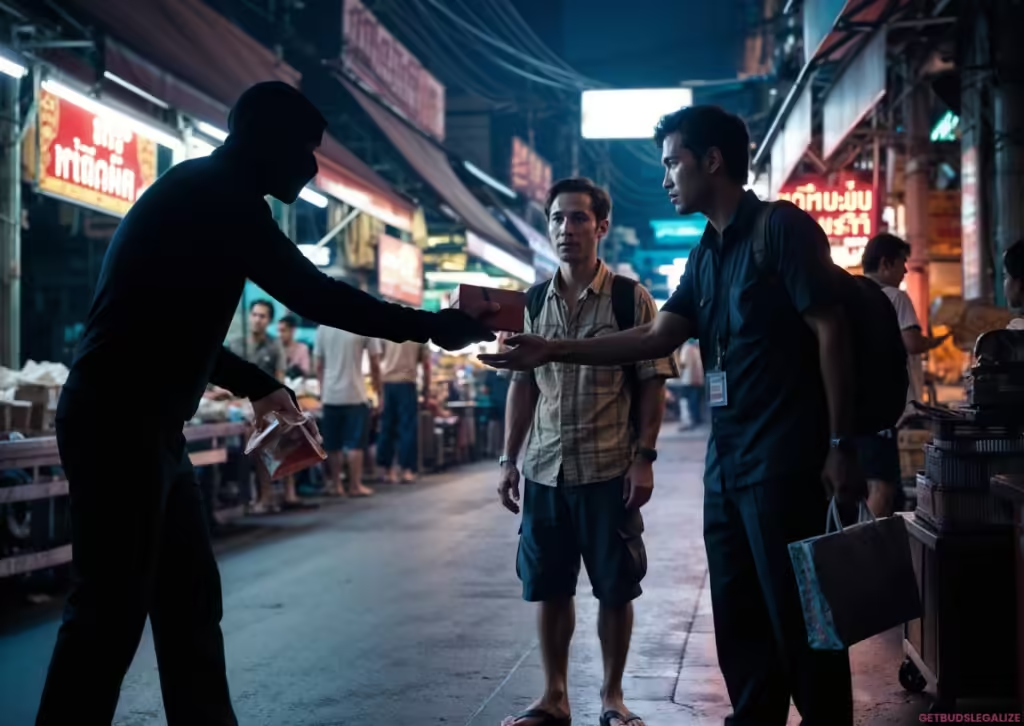
Behind the Scenes: How British Tourists Are Unwittingly Involved in Drug Smuggling in Thailand
The smuggling scheme taps into the allure of free travel, using enticing offers to gain the trust of unsuspecting tourists. Recruits are led to believe they’re simply carrying travel mementos or souvenirs, but in reality, they’re smuggling cannabis across borders.
Lt. Gen. Phanurat Lukboon from Thailand’s ONCB highlights, “These tourists aren’t just being tricked—they’re being seduced by the promise of a free holiday.” The operation, he explains, uses psychological manipulation, making it easy for the unsuspecting to get involved without recognizing the criminal nature of their actions.
Recent Developments in the Investigation
Ongoing investigations have revealed the far-reaching extent of this smuggling operation. Thai authorities recently intercepted a shipment containing 210 grams of ecstasy precursor disguised as a dietary supplement. Further investigation connected the shipment to British and Dutch nationals living in Bangkok, believed to be key players in the drug trafficking network.
Raids conducted at properties rented by the suspects uncovered 36 kilograms of cannabis, packaging materials, and 1.4 kilograms of concentrated cannabis resin. These individuals, residing in Thailand under tourist visas, orchestrated drug exports while posing as tourists.
How Smugglers Use False Declarations and Disguise Techniques
Drug traffickers employ various methods to evade detection, including false customs declarations. Cannabis shipments have been falsely labeled as “pillows” or other innocuous items, making it easy for packages to slip through customs. Other parcels are given directly to unsuspecting tourists to transport, exploiting their ability to re-enter the UK without visas. The ONCB and British law enforcement have ramped up inspection measures to catch these hidden shipments and prevent tourists from being used as unwitting couriers.
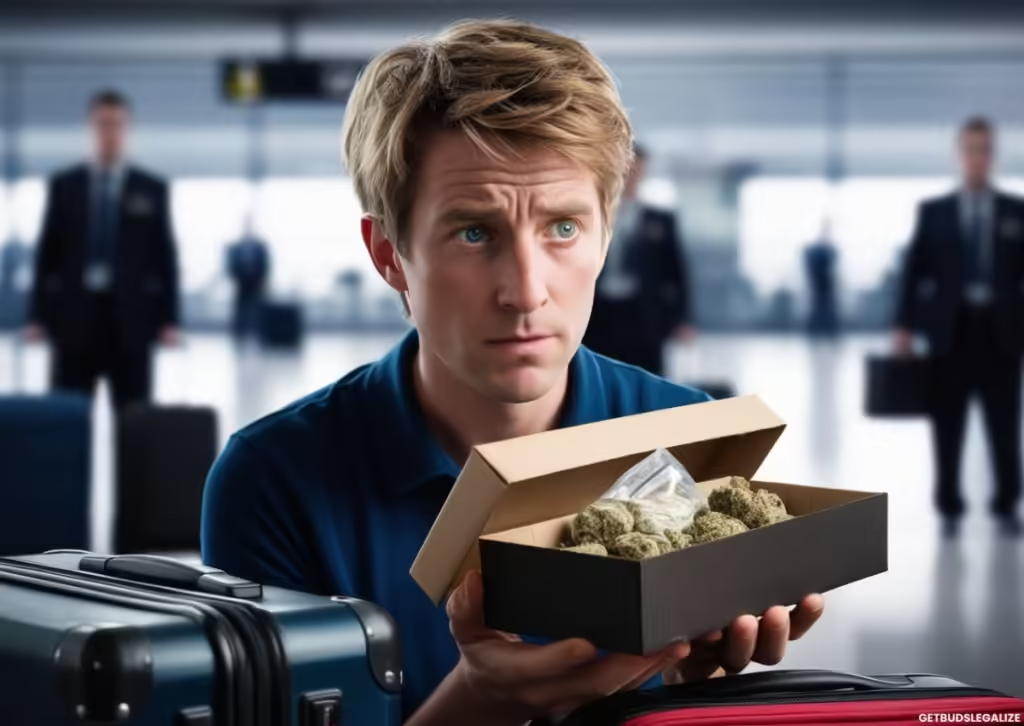
Protecting Yourself: Tips for British Tourists in Thailand
To avoid becoming an unknowing accomplice in this scheme, British tourists should be vigilant when traveling to Thailand. Here are some safety tips to help tourists protect themselves:
- Never Accept Packages from Strangers: Refuse any requests to carry packages, particularly from people you don’t know well.
- Question “Too Good to Be True” Offers: Free holiday offers with added requests to carry goods should be viewed with skepticism.
- Verify Trip Legitimacy: Research travel offers thoroughly and verify them through reputable channels.
- Report Suspicious Activities: If you receive suspicious offers, report them immediately to local authorities or the British Embassy.
- Inspect All Items You Are Asked to Carry: Even if items appear harmless, ensure that you’re fully aware of the contents before transporting them.
Legal Risks: The Consequences of Unintentional Drug Smuggling
Even if a tourist unknowingly transports illegal substances, they may still face severe legal repercussions. Both Thai and British authorities impose strict penalties for drug trafficking, with potential imprisonment. Ignorance of a package’s contents does not always exempt a person from prosecution, so travelers must exercise caution to avoid carrying suspicious items.
Collaborative Efforts Between British and Thai Authorities
To dismantle the network and protect tourists, both British and Thai authorities are collaborating closely. In addition to increased airport screenings, they’re conducting targeted investigations and providing awareness to travelers. British authorities are advising tourists to exercise caution, while the ONCB intensifies efforts to shut down smuggling operations within the country.
Final Thoughts
As the smuggling scheme continues to unfold, British tourists are strongly encouraged to remain vigilant and exercise caution when traveling abroad. By staying informed and following the advice of law enforcement, travelers can help protect themselves from becoming unwitting accomplices in illegal activities, ensuring that their vacations remain free of criminal exploitation.
FAQs: British Tourists and Thai Drug Smuggling Schemes
British tourists are being manipulated by traffickers who promise free holidays in exchange for transporting drugs. They are contacted via platforms like Telegram and offered accommodation, tours, and pocket money in return for smuggling cannabis back to the UK without realizing their involvement in illegal activities.
The UK’s National Crime Agency, along with the British Ambassador to Thailand, has called on Thai authorities, particularly the ONCB, to investigate and shut down the network. Both countries’ law enforcement agencies are working together to track and disrupt the operation.
British tourists are seen as ideal couriers due to the UK’s visa policy, which allows them to re-enter without any special checks. The free vacation offers attract tourists who do not suspect any ulterior motives, making them easier to manipulate.
The drugs are smuggled in two ways: either through parcels shipped directly to the UK with falsified labels (such as “pillows”) or by tourists carrying the drugs in their luggage. Smugglers often disguise the cannabis as souvenirs or personal items.
To protect themselves, tourists should never agree to carry packages for others, particularly from strangers or online acquaintances. Be wary of offers that seem unusually generous, as they may be deceptive. Always check the contents of any item you’re asked to transport, and immediately report any suspicious activity to the authorities.
Yes, even if a tourist does not realize they are carrying illegal drugs, they may still face serious legal consequences. Both Thailand and the UK impose strict penalties for drug trafficking, and ignorance of the contents will not necessarily protect a tourist from prosecution.
The issue has grown significantly in recent months, with a noticeable increase in cannabis smuggling cases between Thailand and the UK. While the exact number of involved tourists is unclear, the frequency of intercepted shipments and arrests suggests this is a major concern.
Travelers should immediately stop all communication with the suspects and report any suspicious activity to local authorities or the British Embassy. If approached by unknown individuals offering suspicious travel packages, they should not engage in further discussions.
The Telegram messaging app has been identified as a key platform used by traffickers to recruit tourists. Additionally, tourist hotspots in Thailand are likely areas where individuals may be targeted by these schemes.
Both Thai and British authorities are increasing airport inspections and parcel screenings to intercept illicit drugs before they leave the country. Public awareness campaigns and joint law enforcement efforts are also underway to prevent tourists from falling victim to these deceptive schemes.

















